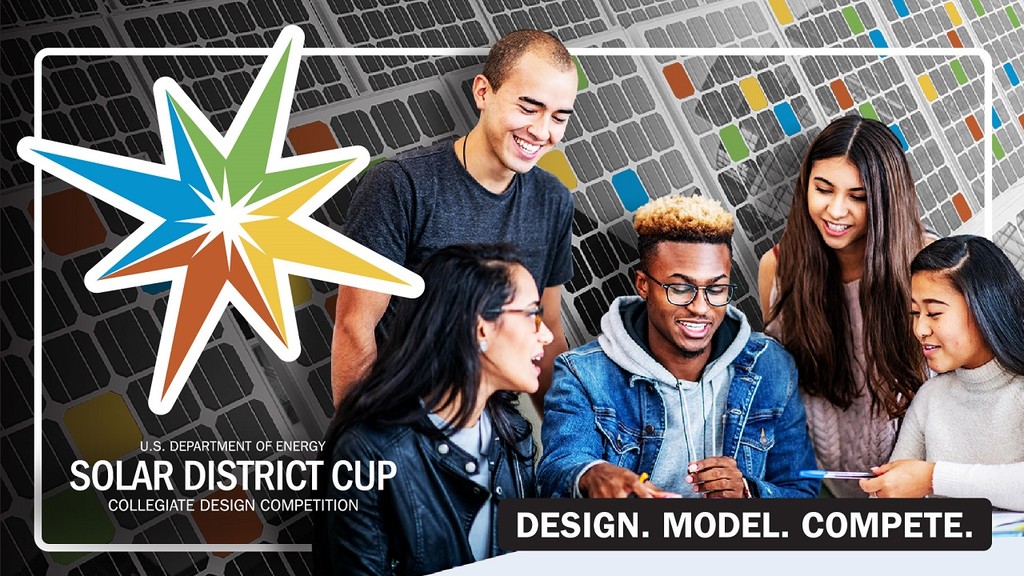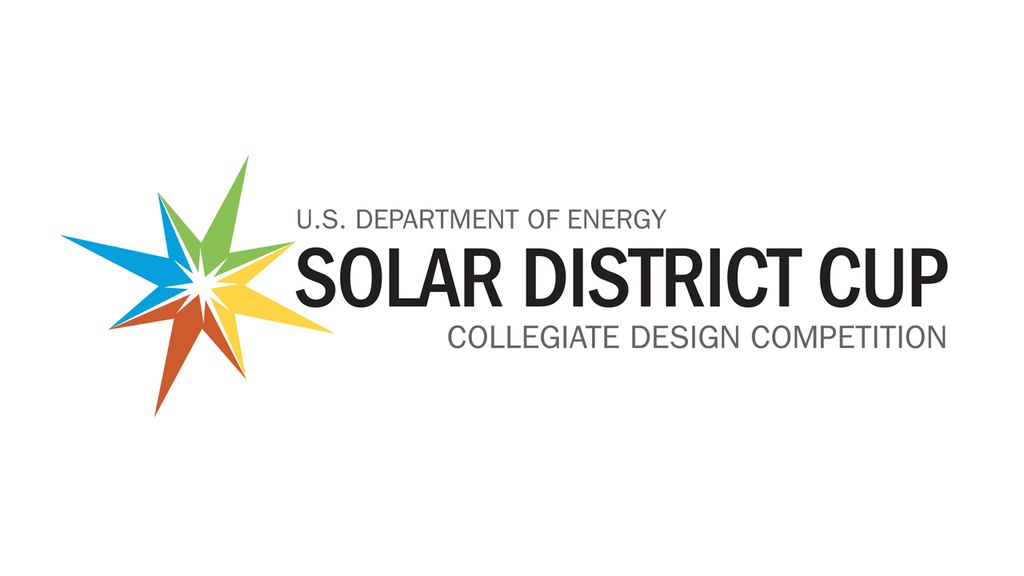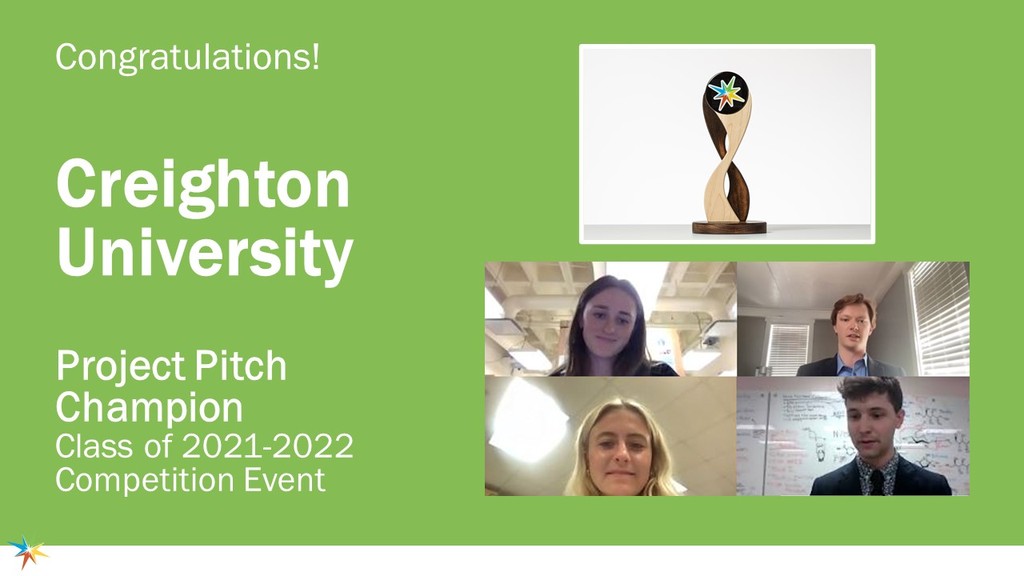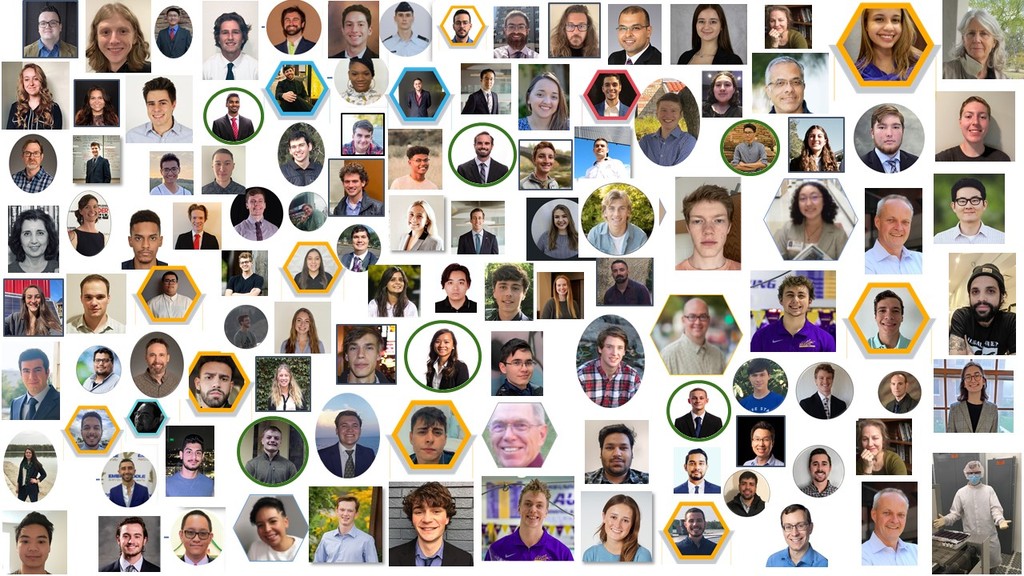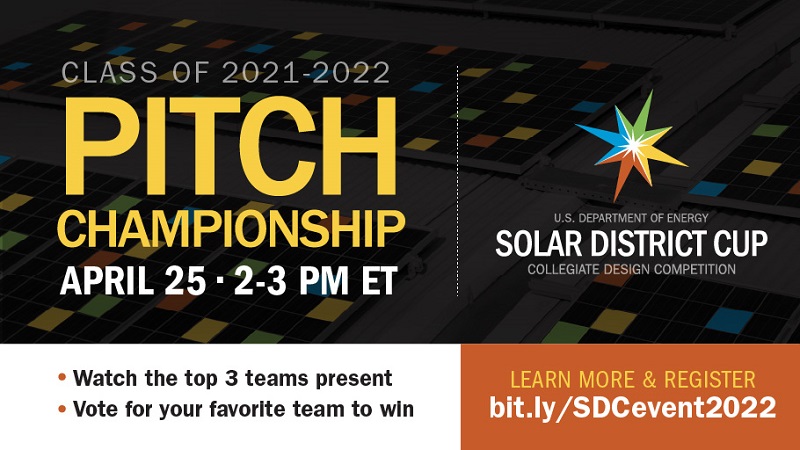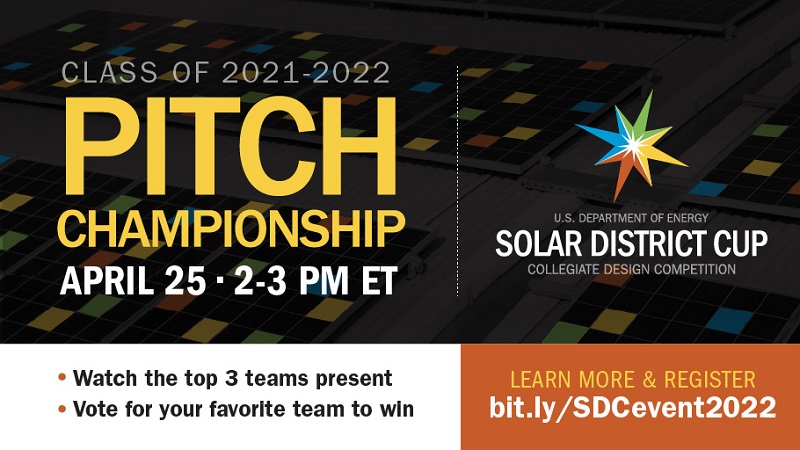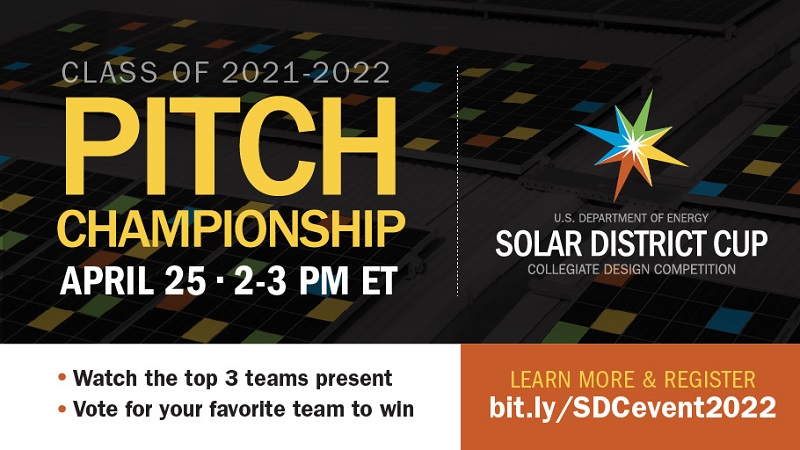2021-2022 COMPETITION EVENT JUDGES
Meet the industry professionals serving as judges for the U.S. Department of Energy Solar District Cup Collegiate Design Competition 2021-2022 event.
Cheyney University of Pennsylvania District Use Case Judges
Kareem Dale
Directory of Energy Productivity (Principal), Key HTX
Kareem Dale received a bachelor’s degree from Morehouse College and has extensive experience in energy efficiency and renewables. He currently works to ensure Key HTX is able to incorporate energy, renewables, and resiliency into all of the company’s ‘Building Smarter, Smarter Buildings’ projects. His scope of work includes everything from designing and implementing commercial property assessed clean energy solar and efficiency projects to helping clients and contracts incorporate efficient and sustainable building material and equipment while remaining budget neutral.
Dr. Olga Lavrova
Associate Professor, New Mexico State University
Olga Lavrova earned her bachelor’s degree in physics and master’s in electrical engineering from the Saint Petersburg Electrotechnical University in Russia, and her doctorate degree from the University of California Santa Barbara. Her previous experience includes serving as principal member of technical staff at Sandia National Laboratory in the Photovoltaics and Distributed Systems Integration Department and as a faculty advisor to both Solar District Cup and Solar Decathlon collegiate teams. Her current work and areas of interest include photovoltaics and semiconductor devices for power electronics, smart grids, renewable energy, and electric energy storage systems.
James K. Lewis
Executive Director of University Operations, Cheyney University of Pennsylvania
James K. Lewis received undergraduate degrees in architectural engineering and civil engineering, as well as a master’s in information sciences, from Drexel University. He is currently a doctoral candidate in public administration from West Chester University. He has extensive experience in planning, construction, and operations, including utilities, and is responsible for all campus operations, including capital and energy-related projects.
Paul Reilly
Director of Origination for Distributed Generation (DG), ENGIE North America
Paul Reilly received a bachelor’s degree in writing, literature, and publishing from Emerson College, and completed certificate course work at Charles University in Prague. Paul has two decades of project, contract, and finance experience focused on telecommunications, as well as distributed generation assets throughout North America. In his current role, Paul leads the DG Origination in the East for the Distributed Solar and Storage Team at ENGIE North America, developing customer sited rooftop, ground mount, and carport solar and storage projects for commercial and industrial customers, universities, cities, and airports.
The Ohio State University District Use Case Judges
Briana Morris
Commercial Technical Designer, Namaste Solar
Briana Morris earned a bachelor’s degree in environmental engineering with a certificate in Spanish language from the University of Colorado Boulder. She has been a solar designer in both commercial and residential design for seven years, four of which have been in lead designer positions. In her current role, she designs everything from 50kW direct current roof mount systems to 6.4MW direct current single-axis tracking ground mounts, including agrivoltaic ground mounts, 1.5MW carports, and medium voltage interconnections with both primary and secondary metering.
Benjamin Schneider
Associate Director of Project Finance, Adapture Renewables
Benjamin Schneider earned a bachelor’s degree in economics from Williams College. Over the past seven years in solar project finance, he has led negotiations with equity and debt investors for structured finance transactions supporting deployment of all scales of solar generation facilities, including residential, commercial and industrial, and utility. In his current role at Adapture, he has closed five such transactions, securing funding for 19 facilities totaling more than 120 MW of installed capacity.
TJ Wood
Energy Program Manager, The Ohio State University
TJ earned a bachelor’s degree in engineering physics and his master’s degree in nuclear engineering from The Ohio State University. He has been in the energy industry for more than eight years and currently works in the office of Comprehensive Energy Management at The Ohio State University. His primary responsibility is to oversee the university’s 50-year partnership with its utility concessionaire, Ohio State Energy Partners. His duties include leading the capital planning process for utility projects on the Columbus campus and the strategic procurement of utility commodities for the university.
Junhui Zhao
Principal Quantitative Engineer at ComEd
Junhui Zhao received his doctorate in electrical engineering from Wayne State University in 2014. He previously worked as an associate professor at the University of New Haven and has served as a faculty advisor for the Collegiate Wind Competition. His current work and areas of interest include battery energy storage systems, power quality correction, and microgrid energy management.
Pacific Northwest National Laboratory District Use Case Judges
Patrick Kinney
Sustainability Engineer, Pacific Northwest National Laboratory
Patrick Kinney earned a bachelor’s degree in mechanical engineering technology from Central Washington University and a master’s degree from Western Governors University. Previously he spent six years working at a large energy services company, developing energy-based projects focused on district energy, deep retrofits, and net-zero energy buildings. In his current role he works on improving sustainability operations over the lab’s entire portfolio of facilities.
Edward Settle
Senior Advisor, Project Development and Finance, National Renewable Energy Laboratory (NREL)
Edward Settle earned a bachelor’s degree in chemical and petroleum-refining engineering from Colorado School of Mines and a master’s degree from the University of Denver. For more than three decades, Edward has been providing technical and economic guidance to investors, developers, lenders, and government, working with all conventional and renewable technologies, including natural gas, coal, oil, geothermal, hydropower, biomass, wind, solar, and municipal waste. Currently, he works with tribes and agencies to develop solar projects and with the U.S. Department of Energy on early-stage energy technology assessments.
Lisha Sun
Principal Engineer, Quanta Technology
Lisha Sun earned a doctorate in electrical engineering from NC State University. She previously worked as an electrical engineer with Start Solar on utility scale PV system design and performance estimation, and currently works on various projects related to distributed energy resource evaluation, distribution analysis, electric vehicle forecast, and impact analysis.
Siddharth Temburni
Director of Engineering, Summit Energy Group
Siddharth Temburni earned a bachelor’s degree in mechanical engineering from Savitribai Phule Pune University in India, and a master’s degree in solar energy engineering from University of Massachusetts Lowell. He is a North American Board of Certified Energy Practitioners-certified photovoltaic (PV) installation professional, a general contractor for residential and commercial buildings, and holds a renewable energy professional license for the state of Rhode Island. As a director of engineering at Summit Energy Group, he manages and trains the design and engineering team, works with national strategic partners on the operations and sales side, works directly with higher management on portfolio financial analysis and feasibility, and has designed and engineered a 30 MW utility-scale ground-mount PV installation for a Texas utility.
